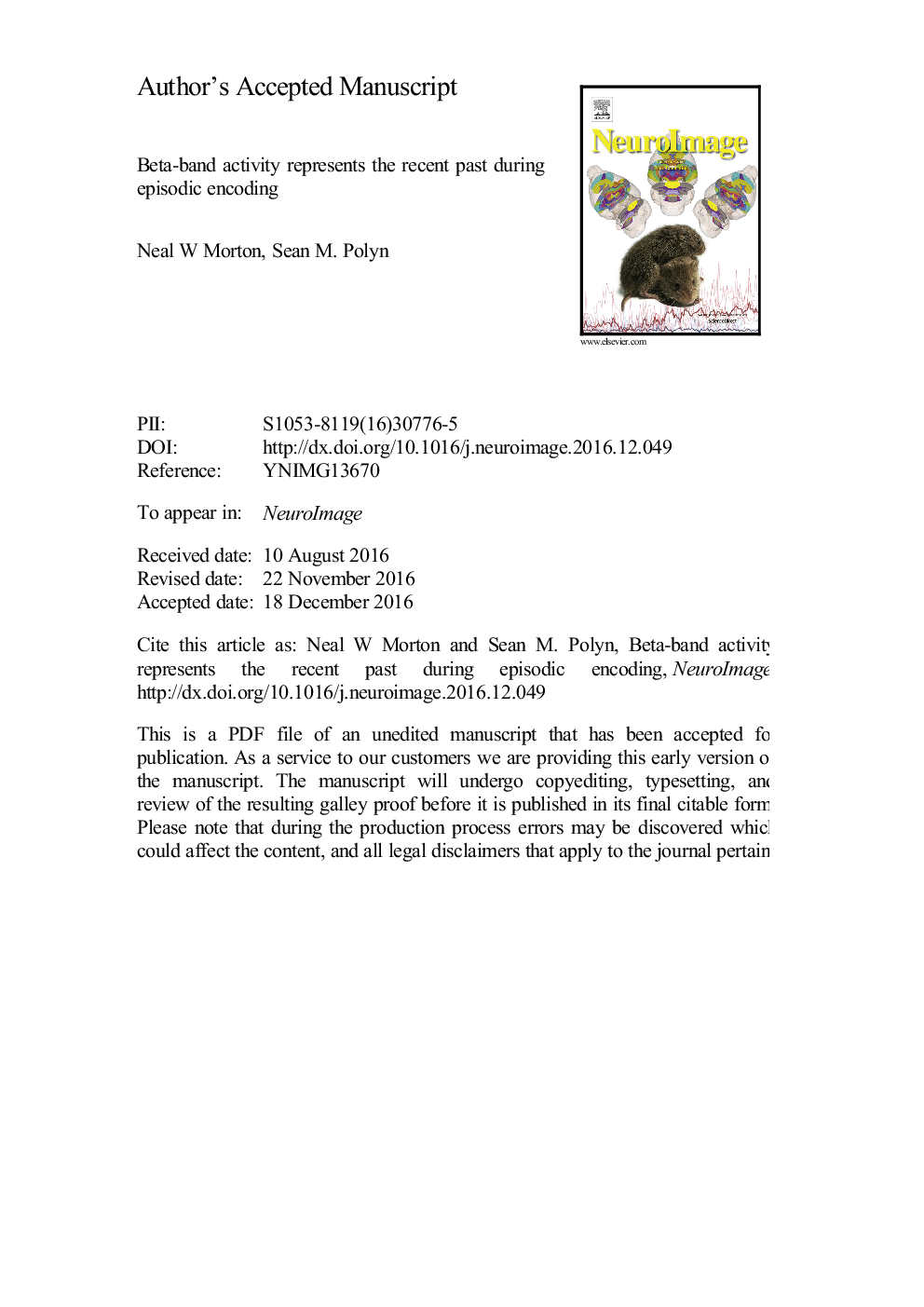ترجمه فارسی عنوان مقاله
فعالیت بتا-باند نشان دهنده گذشته اخیر در زمان رمزگذاری اپیزودیک است
عنوان انگلیسی
Beta-band activity represents the recent past during episodic encoding
| کد مقاله | سال انتشار | تعداد صفحات مقاله انگلیسی |
|---|---|---|
| 119452 | 2017 | 37 صفحه PDF |
منبع

Publisher : Elsevier - Science Direct (الزویر - ساینس دایرکت)
Journal : NeuroImage, Volume 147, 15 February 2017, Pages 692-702
ترجمه کلمات کلیدی
حافظه اپیزودیک، جستجوی حافظه، خوشه بندی مدل محاسباتی،
کلمات کلیدی انگلیسی
Episodic memory; Memory search; Clustering; Computational model;

